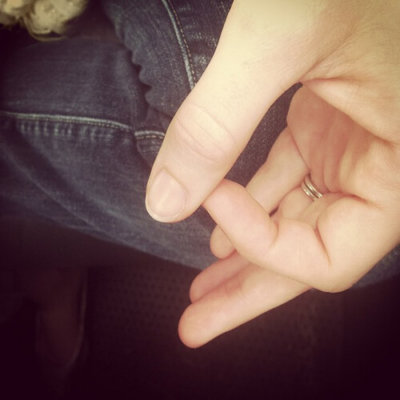Finding the Right Therapist – Essential Questions to Ask

By: Marco Bellucci
by Andrea M. Darcy
Why is finding the right therapist so hard? Are there even good therapists out there?
Did you rush in?
One of the main reasons people leave private therapy is that they don’t like or don’t trust their therapist. They might even decide ‘therapy doesn’t work’, or that ‘therapy is not right for them‘, missing out on ever feeling better.
The truth tends to be that they worked with the first therapist they met, without asking him or her any questions (or realising they could).
Important questions to ask for finding the right therapist
Therapy is actually a relationship between you and your counsellor or psychotherapist. And like any relationship, when finding a therapist you need to know what you are getting into. The following are important questions to ask when finding the right therapist for you.
1. What is your training and certification?
Counselling and psychotherapy are forms of highly evolved listening and understanding that are much harder to do well then a good therapist makes it seem. So a good therapist tends to have good training.
Note that here in the UK there is actually no law around who can or can’t call themselves a therapist, so certification is definitely worth asking about.
2. How long have you practised as a therapist?
A lesser experienced therapist with a real love for the job, plus a personality you feel comfortable with, and fees you can afford, might be just perfect for you.
But if you have a certain issue, for example a personality disorder like borderline personality disorder or a condition like post traumatic stress disorder (PTSD) or adult ADHD, it might be that you would be served best by someone with real experience.

By: Growinnc
3. What therapeutic approaches do you use, and are they right for my issues?
Many therapists continue to add to their ‘tool belt’ by taking continuing professional development courses. So they might be versed in many more approaches than just the school of therapeutic thought they qualified in and advertise.
They might also offer additional tools that work alongside their approach, such as mindfulness or visualisation.
4. What would be your suggested plan forward for me?
It can be helpful to hear how the therapist thinks they could best approach helping you with your issues, and for how long they feel you might need therapy (although this might take a few sessions before it can be decided on).
5. Are you registered?
A therapist does not have to be registered to be a good therapist. But if they are registered, it means they have committed to a high set of ethics around how they will work with clients. You can also check yourself if the therapist is registered by calling the relevant registry boards of your country. Here in the UK these include the BACP and UKCP, amongst others.
[Read our article, “Do I Need to Work With a Registered Therapist” for more on this issue.]
6. Have you worked with others with a similar issue/background to me?
If your concern is that you want to work with someone who understands your culture/gender/lifestyle/religion, don’t feel to shy to be upfront and question the therapist’s experience. If your therapist honestly doesn’t have the experience you are hoping for, they might be able to then refer you on to someone who does.
7. Do you have a supervisor/ peer support?

By: Southbank Centre
Most professional therapists in the UK have a supervisor they speak to regularly about their work (while also maintaining your privacy). This is to ensure the therapist always keeps his or her clients’ needs in mind and does not let their own ego interfere.
8. Have you attended therapy yourself?
Most psychotherapy and counselling certifications in the UK require that students are in therapy themselves. But some therapists are counselling psychologists, an academic route where attending therapy can be an option. If you would prefer to work with someone who knows how it feels to be on both sides of the therapeutic relationship, this is something worth asking about. You can also ask if they see a therapist themselves (many do) or are currently working to find one.
9. Do you offer a sliding scale?
If you have found a therapist who you feel might be perfect for your issues and personality, but they are outside of your budget, then it’s worth asking them if they do a sliding scale.
[If cost is a real issue for you, you might find our Guide to Low Cost Counselling useful.]
10. Do you offer therapy sessions on Skype as well as in-person?
Many therapists nowadays will work occasionally over the internet if needed, such as if a client has to work overseas for several weeks. If your schedule might be an issue, it’s helpful to ask in advance about online counselling.
11. What were your reasons for becoming a therapist?
This gives you some insight into the therapist’s philosophy around helping others. Do they deeply value other human beings? Are they compassion-based, or are they more interested in the clinical side of mental health, and understanding the ways people work? Both are reasonable philosophies, but does the one they adhere to work for you, personally?
12. What are your policies around insurance/ cancellation/ payment?
A good therapist will be very clear about all this in a first session. But on the off chance they forget, ask! And if you don’t understand what they do tell you, don’t be too embarrassed to ask for clarification. It’s better to do this now then find out that you misunderstood and insurance hasn’t covered all your sessions, for example.
What if I don’t really like the therapist?
You don’t have to immediately like your therapist! Most people who are seeking therapy have had the sort of childhood or life experiences that breeds wariness when meeting strangers.
Instead of thinking in terms of like/don’t like, look at feelings of safety and openness. Did they seem authentic and kind? Most important of all, could you grow to trust them? Even if it might take some time, are they the sort of person who at least seems trustworthy?
Keep an open mind when finding the right therapist. Balance up the practicals with your instincts, and if he or she seems a possible match, consider trying at least four sessions. This gives both you and the therapist time to be yourselves. Then, if a therapist just isn’t right, be honest it just isn’t a fit. If they are a good and confident therapist, they might even be able to recommend you to a peer they think will work better for you.
Harley Therapy refers you to therapists hand-selected for their warmth and professionalism, and who all have a minimum of ten years post-graduate clinical experience. Contact us for an appointment at one of three central London locations, or anywhere in the world via online therapy.
Have a comment to share with our readers about finding the right therapist? Use the box below.
 Andrea M. Darcy is the lead writer of this site. As well as writing thousands of articles on mental health she is a therapy consultant, helping people with finding the right therapist for their particular issues and personality instead of wasting time and money on therapy that isn’t right for them.
Andrea M. Darcy is the lead writer of this site. As well as writing thousands of articles on mental health she is a therapy consultant, helping people with finding the right therapist for their particular issues and personality instead of wasting time and money on therapy that isn’t right for them.





Nice blog! these are the smart questions to ask your therapist so that you know they are not fake. Thanks for the great information.